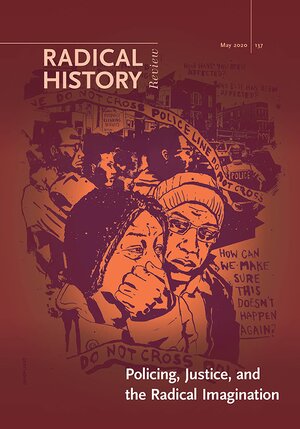This issue]highlights the historically oriented scholarship and politically engaged writing that examine places and times without police.... Modern approaches to governance generally take police as necessary to maintaining social peace, even though they have proven to fail at fostering public safety and in fact tend to escalate harm and violence. Following the lead of activists working to dismantle police, prisons, and other institutions of state violence, the [special issue] takes seriously the question of how to imagine, and build, a world without police. It looks specifically to historical analysis as an especially useful vantage from which to respond to this provocation.... The issue’s contributors detail times and places when people worked without or against formal institutions of modern police.
From the introduction:
"What if we attempted to collect these case studies systematically, putting scholars of various disciplinary stripes in dialogue with activists to ponder these questions together? This issue draws on a range of available resources and methods -- ethnography; political and legal analysis; social and cultural history; art history; literary criticism; and critical inquiry and visual culture by activists organizing to protect people from police violence and, ultimately, to dismantle police. In the limited space between the two covers of this issue, we could only include a small—but, we hope, compelling—sampling of the ways communities pursued public safety and social peace through a variety of means apart from formal policing institutions. The contributions here remind us of the powerful truth at the heart of the study of history: we need to historicize to denaturalize--to comprehend how features of our world taken for granted as necessary elements of a complex modern society emerged out of a historical process."

